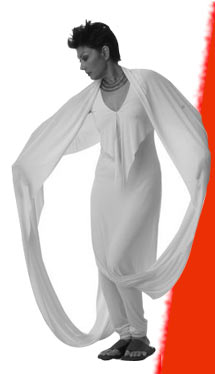Imagine two women claiming a baby as their own. Each presses the child to her heart. Each expends copious tears. Each shows similarities of physical appearance with the baby. Neighbours and family can not resolve the dispute and it goes to court. The judge hears both women, each as convincing as the other. Finally the judge declares, “As this can not be resolved in any way, and as each woman claims maternity, let the child be brought, and let each woman pull it by the legs and take half the child”. The child is brought and one woman seizes one leg. The other breaks down and cries, “Do not hurt my baby. Let her take her if she will be safe”. The true mother is instantly revealed. This story was made famous in the middle of the last century by the German playwright Bertolt Brecht as The Caucasian Chalk Circle.
Brecht had an uncanny ability to zoom into the essentials of life, those emotions and truths, those problems which remain unchanged over time and geography. And that is why the plays never get dated.
Over the last few months I have been involved in playing the lead in a theatrical productions of another of his great timeless pieces, The Good Person of Shezwan, and in its Hindi version, Ramkali. The play is particularly relevant to us in India today as the central question is one that faces us – Can one remain filled with goodness in a totally corrupt and self seeking society.
Three gods, worried about their existence in an ethics less society, need one good person in order to continue being relevant. They find Ramkali, a prostitute and give her the task of remaining good. Her task is onerous and becomes impossible as more and more people take advantage and free loaders take over her life. She is forced to create the persona of her brother, a tough cookie well versed in the nuances of living well by bending, buying or breaking laws and people. To her horror she starts liking his life, as in her own persona she gets taken for rides and exploited by every person she encounters. The brother flourishes, and one part of Ramkali starts becoming used to the lack of ethics, the self serving, the power and the money. Till finally she confronts the gods about the impossibility of being good. In a moving monologue she talks of how those to whom she stretched a hand of help, yanked the arm out; of how she saw success coming to her brother and goodness only being seen as weakness; of how anger and fury ate her up.
In our world today is honesty and goodness celebrated or seen as stupidity? Is it possible to be honest and scrupulous and still run a business? A school? Operate daily and go about the business of living? And if not what kind of monster society have we become?
Some of us in our individual and professional capacities certainly try, and I have to admit that it is indeed a tough call, one that requires alacrity and patience, and the ability to let go a lot that will not happen without bribes of one kind or another. Is it possible only if one has other capacities, like “celebrity” status? I am often told that this is so. But I believe that with some of the new mechanisms put into place by our government, the RTI being the primary one, that it is possible if one can wait and has the patience to do the right thing and follow it through. And I genuinely believe that all of us, however morally degraded we have let ourselves become, somewhere admire and wish to emulate that that is good. In that hope, I continue trying to be Ramkali.
.
.

